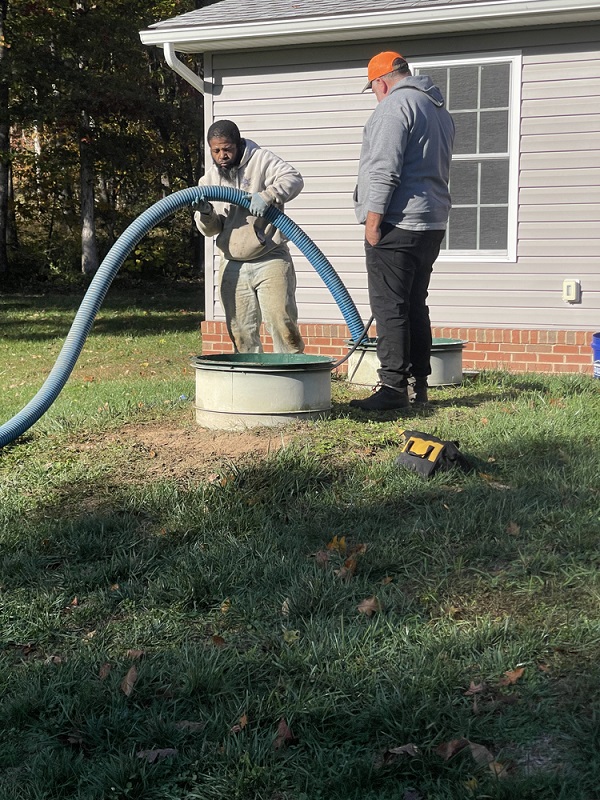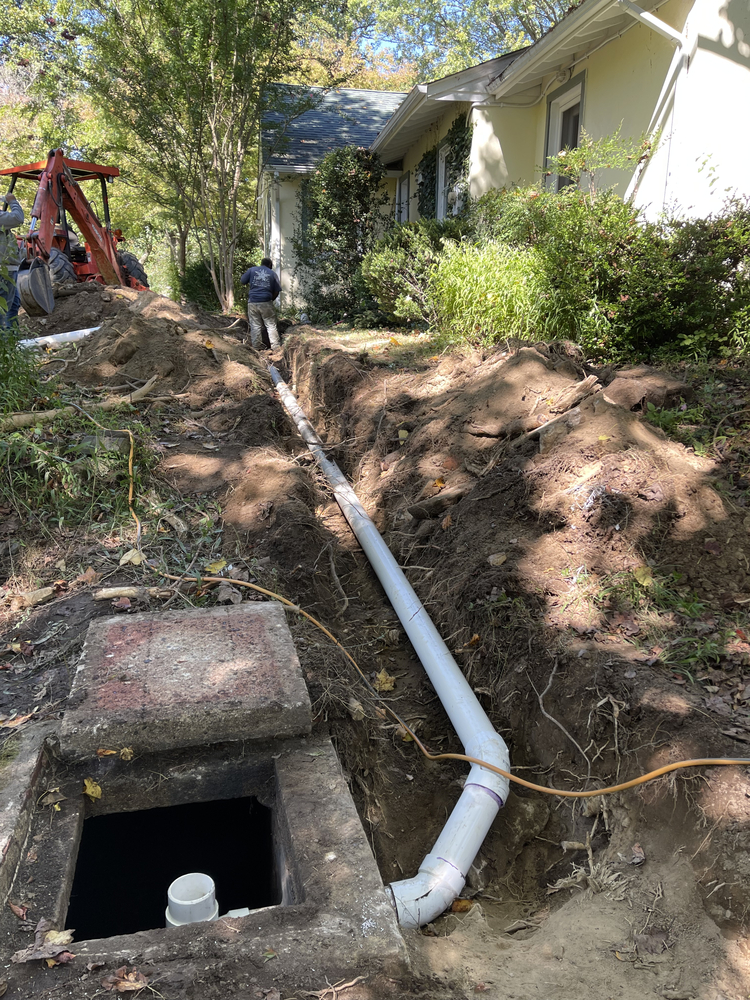Septic system maintenance is an essential aspect of homeownership in Leesburg, VA that should never be overlooked.

As a trusted local septic service provider with over 20 years of experience, we at Allstar Septic have seen firsthand the consequences of neglecting septic system upkeep. That’s why we’ve compiled this comprehensive guide to help you keep your septic system functioning optimally and avoid costly repairs down the road.
Understanding the Importance of Regular Septic System Inspections in Leesburg, VA
Regular septic system inspections are a must for Leesburg homeowners who want to ensure the longevity and reliability of their systems. The Virginia Department of Health recommends having your septic system inspected every 3-5 years, depending on various factors such as household size, water usage, and system age. Neglecting these crucial inspections can lead to undetected issues that may result in system failure, expensive repairs, and potential health and environmental hazards.
| Frequency | Household Size | Water Usage |
|---|---|---|
| 3 years | 1-2 people | Low |
| 4 years | 3-4 people | Moderate |
| 5 years | 5+ people | High |
Recommended septic system inspection frequency based on household size and water usage
At Allstar Septic, our certified technicians use state-of-the-art equipment, including high-definition sewer cameras, to thoroughly inspect your septic system and identify any potential problems before they escalate. By staying on top of regular inspections, you can save yourself the headache and expense of major septic system failures down the line.
Identifying Signs of Septic System Failure Early
Catching septic system problems early is key to minimizing damage and repair costs. As a homeowner, it’s essential to be aware of the warning signs that may indicate a failing septic system. Some common red flags to watch out for include:
- Foul odors emanating from the septic tank or drain field area
- Slow draining sinks, showers, or toilets, often accompanied by gurgling sounds
- Standing water or perpetually soggy patches in your yard near the septic system
- Sewage backup in your home’s plumbing fixtures or basement drains
If you notice any of these signs, don’t hesitate to contact a professional septic service provider like Allstar Septic right away. Our experienced team will diagnose the issue and recommend the most effective course of action to get your system back up and running smoothly.
Effective Water Conservation Strategies for Septic System Health
Conserving water is one of the most impactful things you can do to promote the health and longevity of your septic system. Excessive water usage can overload your system, leading to backups, leach field failure, and premature wear and tear on system components. Here are some simple yet effective water conservation tips every Leesburg homeowner should implement:
- Fix leaky faucets, showerheads, and toilets promptly to avoid wasting water
- Install water-efficient fixtures and appliances, such as low-flow toilets and showerheads
- Spread out laundry loads throughout the week rather than doing multiple loads in one day
- Take shorter showers and avoid taking long baths, which can strain your septic system
- Run the dishwasher and washing machine only when you have a full load
| Water Conservation Tips | Estimated Water Savings |
|---|---|
| Fix leaky fixtures | Up to 200 gallons/week |
| Install low-flow toilets | 2-5 gallons/flush |
| Spread out laundry loads | 30-50 gallons/load |
| Take shorter showers | 2-5 gallons/minute |
| Run full loads only | 15-45 gallons/load |
Estimated water savings for various conservation strategies
By reducing your household’s water usage, you’ll not only help keep your septic system healthy but also lower your monthly water bills and contribute to environmental conservation efforts.
Proper Landscaping Practices to Protect Your Septic System
Many Leesburg homeowners are surprised to learn that their landscaping choices can have a significant impact on the health and performance of their septic systems. Planting the wrong types of vegetation near your septic tank or leach field can lead to root intrusion, which can cause blockages, leaks, and other serious damage.
To protect your septic system from landscaping-related harm, follow these do’s and don’ts:
- DO plant grass or shallow-rooted ground covers over the leach field to promote evaporation and prevent erosion
- DON’T plant trees, shrubs, or any deep-rooted vegetation within 10-30 feet of the septic tank or leach field
- DO keep vehicles, livestock, and heavy machinery away from the septic area to avoid soil compaction
- DON’T install sprinkler systems or heavily water the area above the leach field, as this can saturate the soil and hinder proper wastewater treatment
By adhering to these guidelines, you can maintain an attractive and functional yard while safeguarding your septic system from potential damage.
Creating a Comprehensive Septic System Maintenance Schedule
Staying on top of septic system maintenance is easy when you have a clear plan in place. At Allstar Septic, we recommend creating a comprehensive maintenance schedule that includes the following key tasks:
- Regular septic tank pumping (every 3-5 years, depending on household size and water usage)
- Annual septic system inspections to identify and address any developing issues
- Periodic leach field checks to ensure proper drainage and prevent saturation
- Consistent implementation of water conservation and mindful usage practices
- Keeping a detailed record of all maintenance tasks, service dates, and any repairs or replacements
| Septic System Maintenance Schedule | |
|---|---|
| Task | Frequency |
| Septic tank pumping | Every 3-5 years |
| Annual inspections | Once per year |
| Leach field checks | Every 6 months |
| Water conservation | Ongoing |
| Record-keeping | Ongoing |
Recommended septic system maintenance schedule for Leesburg homeowners
By sticking to this schedule and partnering with a reputable septic service provider like Allstar Septic, you can ensure your septic system remains in optimal condition for years to come, saving you money and stress in the long run.
Why We Think This Is Important: Ensuring a Healthy Septic System for Leesburg Homeowners
At Allstar Septic, our mission is to help Leesburg homeowners maintain healthy, reliable septic systems that stand the test of time. By following the tips and strategies outlined in this article and working closely with our knowledgeable team, you can:
- Prevent costly repairs and premature system replacements
- Protect your property value and the beautiful Leesburg environment
- Enjoy peace of mind knowing your septic system is in capable, caring hands

Don’t wait until there’s a major problem to start thinking about septic system maintenance. Contact Allstar Septic today to schedule your next inspection or septic tank pumping service. Together, we’ll keep your septic system running smoothly and efficiently for the long haul, ensuring a healthier home and community for all.
FAQs
How often should septic systems be inspected in Leesburg, VA?
The Virginia Department of Health recommends having your septic system inspected every 3-5 years, depending on factors such as household size and water usage. Smaller households with low water usage can inspect every 5 years, while larger households with high usage should inspect every 3 years.
What are the signs of septic system failure?
Common signs of septic system failure include foul odors near the septic tank or leach field, slow draining or gurgling plumbing fixtures, standing water or soggy patches in the yard, and sewage backups in the home. If you notice any of these signs, contact Allstar Septic immediately for professional assistance.
What water conservation strategies help maintain a septic system?
Fixing leaky fixtures, installing water-efficient appliances, spreading out laundry loads, taking shorter showers, and running full loads in the dishwasher and washing machine can all help conserve water and maintain your septic system. Implementing these strategies can save hundreds of gallons of water per week and extend the life of your septic system.
How can landscaping affect septic system health?
Planting the wrong vegetation, such as trees or deep-rooted shrubs, near the septic tank or leach field can lead to root intrusion and damage. Stick to grass or shallow-rooted ground covers over the leach field, avoid heavy watering, and keep vehicles and livestock away from the septic area to protect your system.
What steps are involved in creating a septic system maintenance schedule?
A comprehensive septic system maintenance schedule should include regular septic tank pumping (every 3-5 years), annual inspections, periodic leach field checks, ongoing water conservation practices, and detailed record-keeping of all maintenance tasks and service dates. By following this schedule and working with Allstar Septic, you can ensure optimal septic system performance and longevity.


